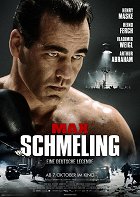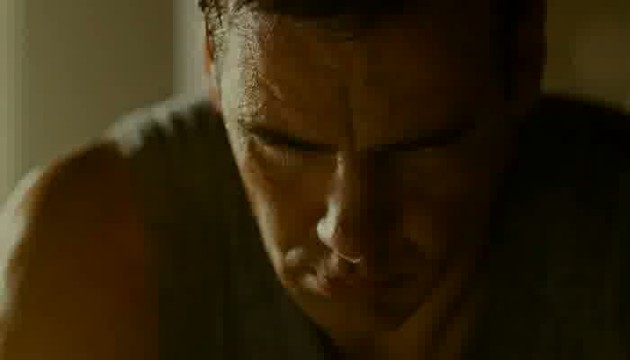Director:
Uwe BollGuión:
Timo BerndtCámara:
Mathias NeumannMúsica:
Jessica de RooijReparto:
Henry Maske, Susanne Wuest, Heino Ferch, Christian Kahrmann, Uwe Boll, Detlef Bothe, Fabian Huebner, Rolf Peter Kahl, Stefan Gebelhoff, Tom Sommerlatte (más)Sinopsis(1)
The legendary Max Schmeling, a skillful boxer, loving husband and reluctant paratrooper, initially cooperates with the Nazi government, but later risks his life in defiance of Hitler's regime. (texto oficial de la distribuidora)
Reseñas (1)
In 1977, Fox made the TV film Ring of Passion for NBC. Its script was confined exclusively to the years 1936-1938, in which two key boxing matches between Joe Louis and Max Schmeling took place. Although it was a pioneering work, it was not very successful. Nobody stands out as an actor, Hitler has sideburns... it's all just so ridiculous. However, this first flagship was not followed up again until 2002, when Starz! and Gemini teamed up in an interesting American-German co-production. The film Joe and Max was incomparably better - Til Schweiger dominated the acting, the sets were much more realistic, and the instrumental music was a real treat. Unfortunately, for example, Peta Wilson managed to recreate Britt Ekland's amateurish performance from years past, but it still wasn't quite the same. So the main strengths of Joe and Max remained the time span of 1936-1952 and the distribution of equal amounts of emphasis on the families of the two champions on two continents. The point was that Joe and Max had always been friends, regardless of politics. And now, eight years later, Uwe Boll has created his purely German film. This director is said to be Germany's answer to Ed Wood Jr.'s personality, but let's leave that aside. Uwe’s Max Schmeling is a film of almost surprising qualities. Boll filmed it using his own production (the whole is dominated by his Boll AG) with a script by Timo Berndt and found by far the most realistic representative for his project in boxer (and up-and-coming actor) Henry Maske. He gave a lot of space to the character Max’s wife Anny Ondra, who, played by Susanne Wuest, completely overshadowed the two previous poor attempts to interpret this outstanding European personality, which earlier also inevitably ran into the fact that she was not just an ornament in a story about boxing. While Wuest's Ondra is still not a perfect portrayal of Anny Ondra, she is at least a compact film character and is contextually set very sensitively in the realities of real life. It is a very pleasant surprise that Karel Lamač’s character is featured, who is even quite correctly introduced as Anna's partner in their production company. Boll's Max Schmeling is thus a biographical biopic about the German sports legend who linked his life with Anny Ondra. Boll also includes all the fundamental twists and turns in their lives after 1930, when they met and he became the heavyweight champion of the world. And after the dramatic events of World War II, he draws the retrospective narrative together in a definitive point in the tumultuous post-war years, culminating solemnly in the finale in 1948. It's been a long time coming - I've been following news of the shoot since at least last summer and the wait has really paid off. The potentially gloomy visions did not come to pass. Boll's film receives major points for the fact that the myth of the conversation with Hitler over a cake, and in the second version over a strudel, is not repeated. The roles of Hitler and Goebbels in Schmeling's life are logically replaced by Hans von Tschammer und Osten, Reichssportführer, and Arthur Lehmann of the Nazi Party. Of course, an ideal film could be a comprehensive biography of Anny Ondra alone, but it is too early for that.
()
(menos)
(más)

